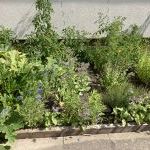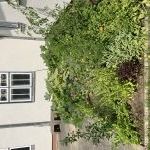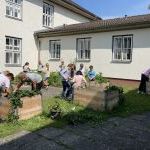Project Aumuhle
The practical implementation of the “Education for Sustainable Development” concept in schools and nurseries can be demonstrated using the example of the rural community of Aumühle (S-H). The aim is to enable the children from elementary school and nursery school to experience nature in their immediate surroundings in a variety of ways and to motivate them to behave in a way that conserves resources and is sustainable. Other rural communities can benefit from the experience gained from the project. Among other things, the following project modules are being implemented: initiation of a 'green classroom',
construction of raised flower beds and strips of flowers, and much more.
Website
Useful links
Rocket Gardens can help schools with their growing projects in the UK
Country
Media
* TOP TIP *
'Create a 'green classroom' by planting flowers and vegetables in the school grounds. Not only is it a great learning opportunity, green spaces also help mental health and welbeing.'
How is the project linked to climate change and sustainability?
The growing areas on the premises of the school and the kindergarten (raised beds, strips of flowers, etc.) enable the children of the Aumühle community to have natural experiences in daily life. The central idea of all activities is: "Only what I know I love, only what I love I protect." (Konrad Lorenz). The specific experience of nature and the direct engagement through activities go hand-in-hand with an increased appreciation and a positive change in environmental awareness and behaviour. The project aims to enable children, the consumers of tomorrow, to treat nature and resources in a more sustainable way. In addition, biodiversity is promoted.
Who is involved?
Elementary school pupils and nursery children. In particular educators, teachers and headmasters of the elementary school, kindergarten as well as parents. The project is co-ordinated by Ökomarkt e.V
How are the participants involved?
The working group consists of the headmaster, two teachers, the headmaster of the care center and Ökomart e.V. The group meet every four weeks to develop and plan concepts. The students take part in the planting campaigns. You are involved in creating tall flower beds, sowing, planting and growing, harvesting and processing the crop. The children can experience the process from planting to harvesting ripe fruit and vegetables with all their senses. The intensive care and action automatically increases the appreciation for home-grown food and usually also the joy in eating fruit and vegetables.
Ökomarkt e.V. develops learning modules for the measurements described in cooperation with the participants. These modules are carried out in cooperation with the institutions as part of an annual plan in order to ensure a useful and permanent integration of the newly created natural areas into everyday school life. It should also make it easier for educators to incorporate environmental issues into everyday school or kindergarten life. In addition to the learning units of practical gardening on the raised flower bed, other natural topics should also be integrated, e.g. the construction of nest boxes or insect hotels, the sensory training with fruit, vegetables and herbs, the preparation of simple recipes and much more.
Key steps:
These steps can be followed with most city farms:
1. Start a working group with the headmaster, the teachers, stff of a care centre and parents - perhaps find a supportive organisation (eg the Ökomarkt e.V.) to help with planning the growing
2. Develop the concept to suit your own school
3. Prepare the site - procurement of material and plants, creation of high flower beds
4. Plant and cultivate flower beds and borders
5. Green the school campus (planting early flowering plants, habitats for insects)
6. Support the project with planting and cultivation campaigns for the school campus and development of measurements in connection with the school garden
7. Organise visits to professional growers and organic farms to learn about large-scale food production



